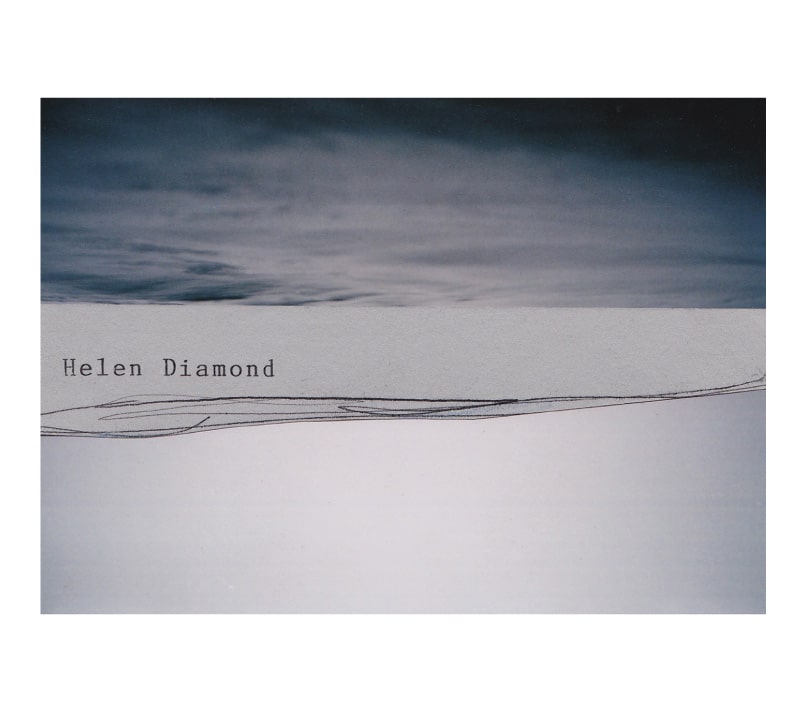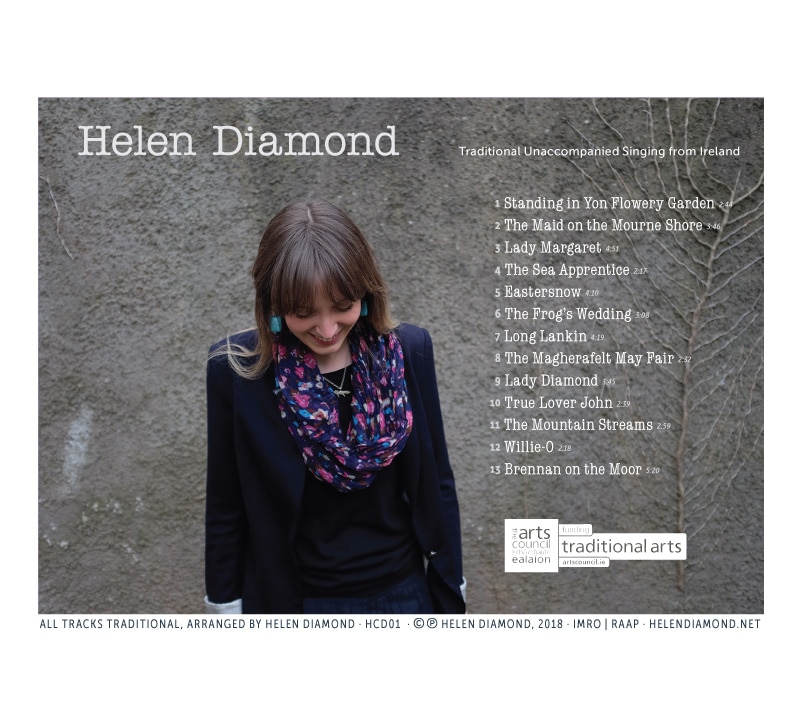
Traditional unaccompanied singing from Ireland
- Produced by Helen Diamond
- Recorded, mixed, and mastered by Danny Diamond
- Photography: Anna Lethert
- Artwork: Susan Hughes
- Design: Nick Lethert
“The Ulster singing tradition is in safe hands… impeccable choice and renditions of songs! Most enjoyable! Comhghairdeas a Helen, tá éacht déanta agat!” -Mairéad Ní Mhaonaigh

The Songs
click title for lyrics
1. Standing in Yon Flowery Garden
This version comes from the fantastic Armagh singer Sarah Anne O’Neill. I learned it from Topic Record’s Voice Of the People: Who’s That at My Bed Window.
Standing in yon flowery garden,
A handsome young man he passed me by,
He passed me by and he seemed to know me,
And he said ‘fair maid, would you fancy I?’‘Fancy you sir, a man of honour?
For a man of honour you seem to be,
And what am I but a servant girl, sir,
And a servant girl I intend to be’.‘For it’s seven years since I had a sweetheart,
And six of them since I did him see,
And seven more I will wait upon him,
And if he’s alive he’ll return to me’.‘Well if it’s seven years since you had a sweetheart,
And six of them since you did him see,
Perhaps this young man is dead or married,
This young man’s face you might never see’.‘Well if he’s married I wish him happy,
And if he is dead I wish him rest,
And if he’s alive and a single sailor,
Sure he’s the young man I love the best’.He put his hand into his pocket,
And his lily-white fingers were thin and small,
And out between them brought a guinea-gold ring sir,
And when she saw it she down did fall.He lifted her up into his arms,
And he gave her kisses most tenderly,
Saying I’m your Willie and your single sailor,
Come home from sea to wed none but you.‘Well if you’re my Willie and my single sailor,
Your face and features seem strange to me,
But seven years makes an alteration,
With the raging seas between you and me’.2. The Maid on the Mourne Shore
I was immediately drawn to the unusual melody of this version, from Robert Cinnamond. I heard it first in the Irish Traditional Music Archive in Dublin.
Ye hills and dales and flowery vales that lie around the Mourne Shore,
Ye winds that blow o’er Martin’s hills, will I ever hear you more?,
Where the primrose grows and the violet blows, and the speckled trout there plays,
With my line and hook, delight I took, to spend my youthful days.Last night I went to see my love, to hear what she would say,
Thinking she might pity me, lest I should go away.
She says ‘I love a sailor, he’s the lad that I do adore,
And for seven years I will wait on him, so trouble me no more’.‘Perhaps your sailor may be lost in crossing o’er the main,
Or otherwise has fixed his mind upon some comely dame’.
‘Well if the sea proves false to me, no other I will enjoy,
For ever since I saw his face I loved my sailor boy’.So farewell to Lord Edward’s groves, likewise to the bleaching green,
Where the linen webs lie neat and white, clear flows the crystal stream,
Where many’s the happy days I spent, but now, alas, they’re o’er,
Since the girl I love has banished me, far, far from the Mourne shore.Our ship she lies at Warren’s point, all ready to set sail,
May all goodness now protect her with a smooth and a pleasant gale.
Had I ten thousand pounds in gold or had I ten times more,
I would freely give it to that girl I love, the maid on the Mourne shore.

The Songs
click title for lyrics
Item
I am a so called subtitle.Content goes here ..
Item 2
I am a so called subtitle.Content goes here ..